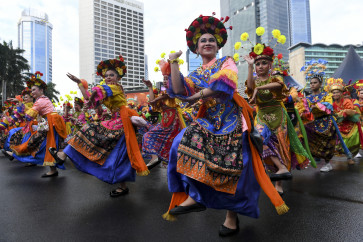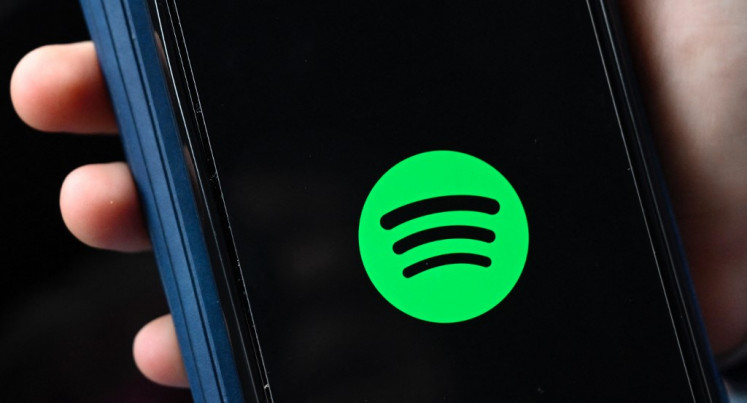Popular Reads
Top Results
Can't find what you're looking for?
View all search resultsPopular Reads
Top Results
Can't find what you're looking for?
View all search resultsFacebook: blessing or curse?
Twenty-four million Indonesians have made Facebook the nation’s most popular website, ahead of search engines Yahoo and Google
Change text size
Gift Premium Articles
to Anyone
T
wenty-four million Indonesians have made Facebook the nation’s most popular website, ahead of search engines Yahoo and Google.
One of those users, Zafira Kanara, a student at Bogor Agricultural Institute, said she used Facebook to help her study.
“I’ve made a Facebook group through which I can share information about lessons from class, exercises, scores and homework with my fellow classmates,” she said. But more than any other factor, she said, Facebook offered the best networking experience.
“I can connect with people easier and in a more fun way than on other sites. The fun comes from photo-tagging, exclusive networking and news information,” she said, adding that her parents were concerned about her “addiction” to Facebook.
Another Facebook user, Ricky Raymon, said he depended on the site for his work at a NGO, sending more messages through Facebook than via texting. “Facebook is the most effective and efficient way to communicate with people since most people use it everyday,” Ricky said.
Some use the site for self promotion. University of Indonesia (UI) student Wulan Apriliani, 20, said that she might be famous on Facebook even if only for a minute.
“I met my fiancé on Facebook. I broadcast my new relationship status and he always likes my status. He always gives me comments and ‘pokes’ me. This makes my heart melt,” Wulan said.
Others were reluctant to expose themselves on Facebook, saying they did not have time for social networking.
Anindio Prabu, also a UI student, said there was a danger in revealing too much personal information on Facebook. “I want to keep my private life a secret from others,” he said.
He said that Facebook was a prone to creating trouble, describing it as a waste of time.
Anindita Budiutami, a student at a language school in West Jakarta agreed, saying she limited her Facebook friends to her actual friends.
“I don’t use Facebook to make friends or look for dates with random people. If a request comes from my friends from real life, I will accept. If they are total strangers, I will just ignore them,” she said.
Critics have blamed Facebook for a host of social problems, including squandered productivity, divorce, kidnapping and rape.
Some Muslim clerics have sought ways regulate behavior online in Indonesia, saying that the popularity of social networking sites such as Facebook might encourage illicit sex.
Seven hundred clerics met in East Java in 2009 and issued guidelines forbidding their followers from using the Internet to flirt or engage in activity that might encourage extramarital affairs.
For most local companies, Facebook is another distraction that may adversely impact employee productivity. Many offices in Jakarta block Facebook during working hours.
Carolina Rizki Putri, 24, an information technology (IT) worker at PT. Scan Nusantara, said Facebook was blocked in throughout her workplace, except in the IT division.
“But this does not seem to work, because it can still be accessed from mobile phones,” Carolina said.










